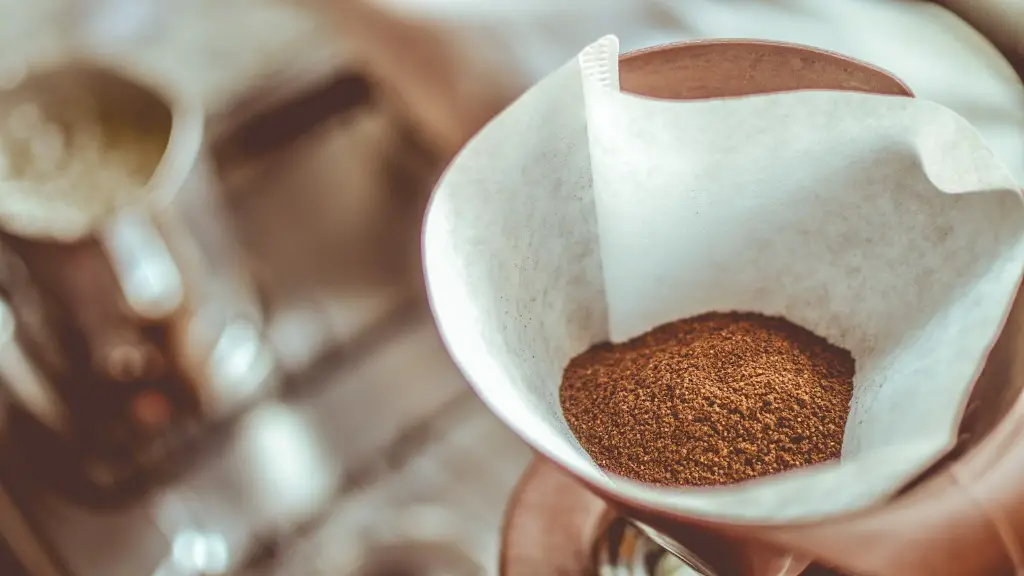Coffee is a popular beverage among many people, particularly during pregnancy. But it’s important to understand the potential risks and benefits associated with coffee consumption during pregnancy before you reach for your cup of joe.
Caffeine is a stimulant and is found in coffee, tea, soda, and energy drinks. Research shows that moderate amounts of caffeine are generally safe during pregnancy, but it is important to understand that too much caffeine may be detrimental to your baby’s health.
The American College of Obstetricians and Gynecologists suggests that pregnant women limit their caffeine intake to 200 milligrams per day. That’s equivalent to about one 12-ounce cup of coffee. A 16-ounce grande cup of drip coffee at Starbucks contains 330 milligrams of caffeine, so it’s important to pay attention to the amount of coffee that you are consuming.
Dr. Anna Kilpela, an OB/GYN and medical advisor for Maven Clinic, says “Coffee taken in moderation can be safe for pregnant women. But if you consume too much, it can lead to caffeine-related problems such as increases in blood pressure, heart rate, and nervousness.”
Caffeine can also cause your baby to be restless in the womb and can make it difficult for your baby to get the rest that she needs for optimal fetal development. In addition, it can also cause low iron levels in both the mother and baby. Low iron can lead to anemia, which can cause a decrease in the production of red blood cells that are important for supplying oxygen to the body.
Another downside to drinking too much coffee during pregnancy is that it can cause dehydration. Dehydration can lead to headaches, fatigue, and constipation. Although there is no scientific evidence that drinking too much coffee increases the risk of miscarriage, it is believed that the caffeine in coffee can contribute to other pregnancy issues, such as babies being born prematurely or having a low birth weight.
Overall, the best approach to take is to consume caffeine in moderation. Even if the research says that it is safe to have one cup of coffee a day, it is important to listen to your body and make sure that you are taking good care of yourself. Avoid drinking too much coffee, as it can have a negative impact on your health and the health of your baby.
An Excess Of Caffeine
It’s easy to get carried away with drinking a few too many cups of coffee. According to Dr. Kilpela, the main problem with drinking too much caffeine during pregnancy is that it “can cause health and developmental risks for the baby.” High intake of caffeine can lead to an increased risk of stillbirth and low birth weight, as well as an increased risk of preterm delivery.
In a study of over 500 000 mothers, researchers found that elevated prenatal caffeine consumption was associated with an increased risk of stillbirth and preterm birth. In addition, mothers who drank 2 or more cups of coffee a day had a higher risk of having a baby with low birth weight.
Elevated caffeine consumption can also lead to poor fetal growth, premature labor, and poor neurological development in the baby. One study found that babies born to mothers who consumed more than 300 mg of caffeine per day had a higher risk of having nervous system abnormalities.
The bottom line is that it’s important to pay close attention to your caffeine intake during pregnancy. Dr. Kilpela recommends that pregnant women “limit their caffeine intake to no more than 200 mg per day. This equates to no more than 1 cup of coffee per day.”
Alternatives To Coffee
If you are finding it difficult to moderate your coffee intake, there are several alternatives that you can turn to. For example, you can try drinking decaf coffee or tea, which has much lower levels of caffeine. You could also try switching to other beverages such as herbal teas, almond milk lattes, or sparkling water with a splash of juice.
If you want something with a bit more of a kick, you could try swapping out coffee for an iced green tea latte or a caffeinated tea like yerba mate. Yerba mate has been found to have a host of health benefits, including a boost in energy, improved digestion, and enhanced cognitive performance.
Another option is to reach for an energy drink. Energy drinks are typically much lower in caffeine than coffee, so they can be a good option for those looking for an occasional pick-me-up. However, it’s important to remember that energy drinks are highly processed and tend to pack high levels of sugar and unhealthy additives such as artificial sweeteners.
It’s also important to note that caffeine isn’t the only stimulant to watch out for during pregnancy. Some common over-the-counter medications, such as Midol, Nyquil, and Excedrin, also contain caffeine. Whenever you are taking medications, it’s important to read the label and make sure that you are not consuming too much caffeine.
Effects On Breastfeeding
If you are breastfeeding, it’s important to note that caffeine does pass through the breast milk to the baby. According to the American College of Obstetricians and Gynecologists, it’s best to limit your caffeine intake to no more than 300 mg per day while breastfeeding.
Dr. Kilpela adds, “Too much caffeine can interfere with your baby’s sleep patterns and can cause them to become agitated and unable to settle down. Furthermore, it can also lead to poor feeding, poor sleep, and fussiness in the baby.”
If you notice that your baby is having difficulty sleeping, fussy, or irritable after you have had caffeine, it may be wise to reduce your intake or eliminate it altogether. It’s important to keep in mind that just because caffeine does not appear to be detrimental to the baby in utero, it does not mean that it is not having an effect on the baby after birth.
A Balanced Approach
Ultimately, it’s important to keep in mind that too much of anything can be bad for you and your baby. Dr. Kilpela recommends talking to your doctor or midwife to determine your individual needs and to find a balanced approach to caffeine consumption during pregnancy.
It’s also a good idea to listen to your body and pay attention to how caffeine is affecting you. If you notice that you are feeling jittery, anxious, or having trouble sleeping, it may be best to cut back on the caffeine or eliminate it from your diet altogether.
Additionally, keep in mind that some studies suggest that regular coffee consumption may have some health benefits during pregnancy. A study conducted at the University of Boston found that women who consumed one cup of coffee a day were less likely to give birth to babies with congenital heart or neural tube defects, compared to those who drank no coffee. More research is needed to determine the effects of coffee on pregnancy and birth outcomes, but this provides some promising information.
Coffee Alternatives During Pregnancy
If you are pregnant and looking to reduce your caffeine intake, there are a number of other beverages that can provide a boost of energy without the side effects of caffeine. For example, you could opt for a matcha latte, which is a great source of both caffeine and antioxidants.
In addition, many teas, such as rooibos and chamomile, are naturally caffeine-free and contain antioxidants and anti-inflammatory compounds that are beneficial for both you and your baby. Other alternatives include herbal teas, such as mint or ginger, coconut water, and smoothies.
If you’re looking for a natural way to kick-start your day, you could also opt for a healthy breakfast smoothie or granola bowl. Eating a balanced diet is essential for nourishing your body during pregnancy and will help you to maintain your energy levels throughout the day.
Although it may seem like a daunting task to reduce your caffeine intake while pregnant, it is attainable with the right knowledge and resources. Ultimately, it’s important to make informed decisions and keep in mind the potential risks associated with too much caffeine intake during pregnancy.





